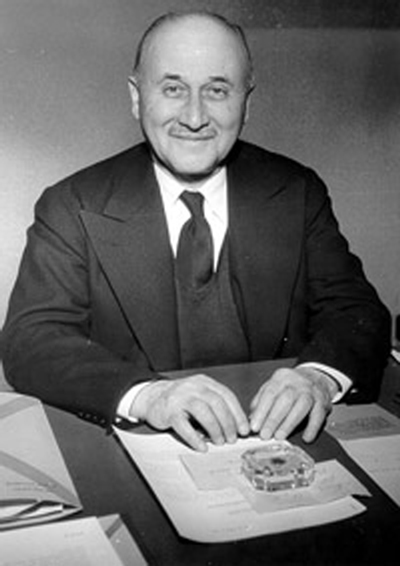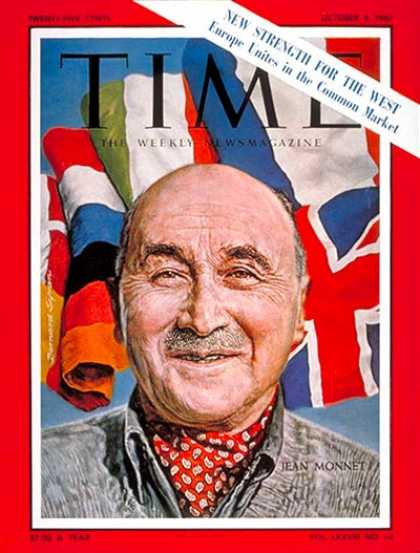A European ideal
As the head of France's General Planning Commission, Monnet was the real author of what has become known as the 1950 "Schuman Plan" to create the European Coal and Steel Community (ECSC), forerunner of the Common Market.
The following quote is often misascribed to Jean Monnet — in fact it is a paraphrase of a characterization of Monnet's intentions by British Conservative Adrian Hilton:
"Europe's nations should be guided towards a super state without their people understanding what is happening. This can be accomplished by successive steps each disguised as having an economic purpose, but which will eventually and irreversibly lead to federation."
Monnet is reported to have expressed somewhat similar sentiments, but without the notion of intentional deception, saying "Via money Europe could become political in five years" and "... the current communities should be completed by a Finance Common Market which would lead us to European economic unity. Only then would ... the mutual commitments make it fairly easy to produce the political union which is the goal."
Common Market
In 1955, Monnet founded the Action Committee for the United States of Europe in order to revive European construction following the failure of the European Defense Community (EDC). It brought political parties and European trade unions together to become a driving force behind the initiatives which laid the foundation for the European Union as it eventually emerged: first the European Economic Community (EEC) (1958) (known commonly as the "Common Market"), which was established by the Treaty of Rome of 1957; later the European Community (1967) with its corresponding bodies, the European Commission and the European Council of Ministers, British membership in the Community (1973), the European Council (1974), the European Monetary System (1979), and the European Parliament (1979). This process reflected Monnet's belief in a gradualist approach for constructing European unity.
After retiring to his home in Houjarray, Monnet wrote his memoirs. He died in 1979 at the age of ninety. In 1988, by order of the president François Mitterrand, Jean Monnet's remains were transferred to the Panthéon of Paris.





